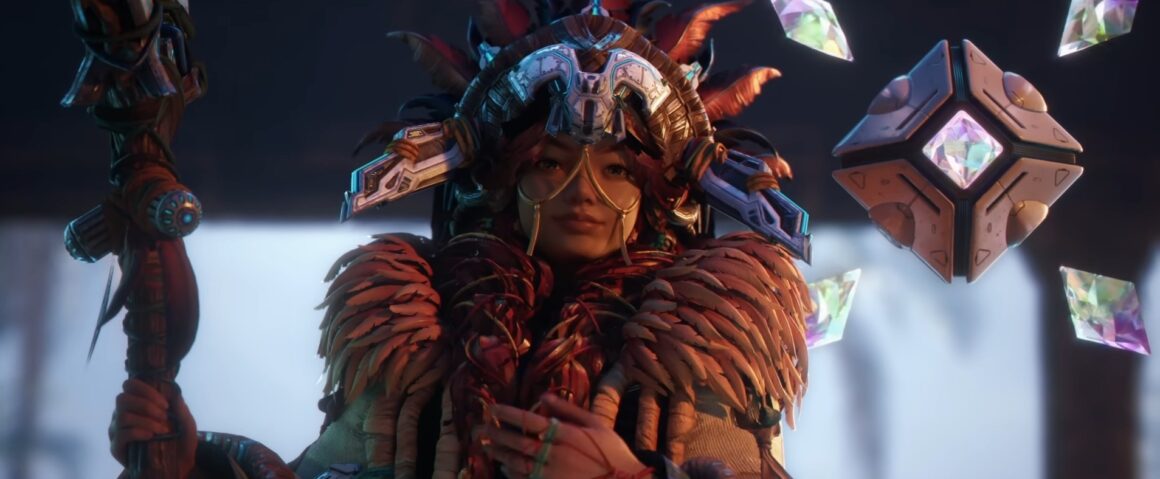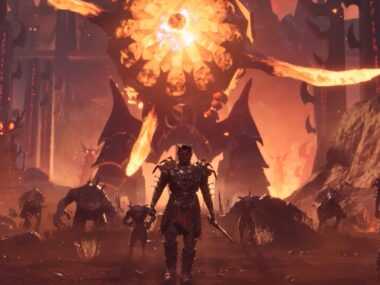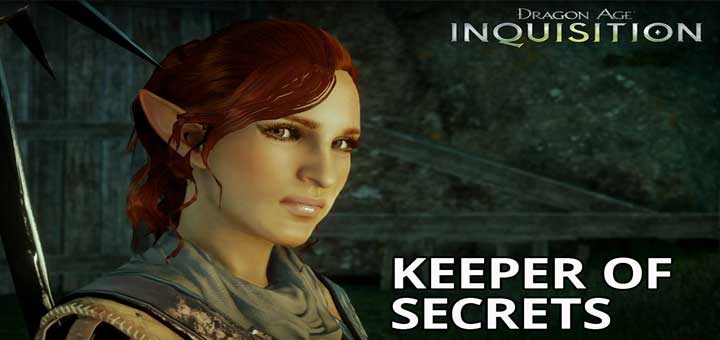Sony Interactive Entertainment is suing Tencent over its upcoming game, Light of Motiram, and the lawsuit goes deeper than you might think. While I initially shrugged it off as another overreaction, digging into the details changed my mind. It’s not just about a red-haired protagonist and robot animals. It’s about licensing deals, rejected pitches, and what happens when “inspired by” starts looking a little too familiar.
Sony Said No. Tencent Made the Game Anyway.
Back in early 2024, Tencent approached Sony with a pitch: a mobile Horizon game tailored for the Asian market. The proposal, called “Expanding the Horizon,” reimagined Aloy traveling east to explore new cultures and tribes, complete with mech-dragons and survival-crafting elements. Tencent’s Aurora Studios didn’t just come with ideas. They came with trophies, and screenshots showing their love for the Horizon series.
Sony declined the pitch in April 2024.
In November, Tencent announced Light of Motiram. A new game with no mention of Horizon, but plenty of familiar-looking elements. The lawsuit, filed in California federal court on July 25, 2025, calls it a “slavish clone,” accusing Tencent of lifting Horizon’s gameplay, aesthetics, and identity after their partnership request was rejected.
At First Glance, It Doesn’t Scream “Horizon”
When I watched the trailer, I didn’t immediately think of Horizon. I saw more comparison to ARK: Survival Evolved. I spent many hours walking around with my mechanical T-Rexes in ARK. For me, the survival aspects and the mechanical animals with living creatures screamed ARK. The floaty ghost companion looked pulled from Destiny 2. The combat and gear the character was wearing reminded me of Monster Hunter, not Horizon. It was only after I compared more carefully that the Horizon influence became clear.
Sony’s complaint highlights several similarities:
- A red-haired woman in a lush, post-apocalyptic world
- Mechanical animal-like creatures
- A high-tech earpiece called the “Angelos,” mirroring Horizon’s “Focus”
- UI design, fonts, color grading, and even sound cues
Despite these overlaps, I added Light of Motiram to my Steam wishlist because it reminded me of ARK. The weapon variety, the survival mechanics, the multiplayer… it looked like a mashup of several genres. It didn’t feel like a Horizon ripoff in spirit, even if the visuals raised eyebrows.
The Real Problem Is the Pitch
Sony’s strongest point isn’t just that Light of Motiram looks similar. It’s that Tencent tried to license Horizon, got rejected, then advertised a game that checks many of the same boxes. Let’s be clear: the game had significant progress when Aurora Studios pitched it to Sony. It’s the timeline that makes this look suspicious:
- March 2024: Tencent pitches a Horizon mobile game
- April 2024: Sony says no
- November 2024: Tencent announces Light of Motiram
They didn’t want to cancel a game so far advanced. It looks like the game has potential. Personally, I would have made the game a unique brand instead of approaching Sony. What if they are already working on Aloy going to Asia? If not, they gave them an excellent idea.
According to the lawsuit, Light of Motiram ditches the Eastern themes from the original pitch and instead copies Horizon’s visual and mechanical identity. That sequence of events, not just the end product, could be the strongest part of Sony’s case.
Did They Change It Enough?
That’s the key question here. Is Light of Motiram just another open-world survival game in a post-apocalyptic setting? Or did Tencent copy enough of Horizon’s DNA that it crosses a legal line?
Aloy’s signature weapon is a bow. Light of Motiram’s character switches between melee weapons. The clothing is different. The world design shares some traits, but it’s also more interactive, with base-building, co-op, and taming mechanical pets. Critics and players alike have said the gameplay feels closer to ARK than Horizon. I agree.
In fact, Light of Motiram seems to pull from multiple sources:
- Horizon for the art style and mechanical creatures
- ARK for base-building, mechanical creatures and survival systems
- Monster Hunter for combat
- Destiny 2 for UI and floating companion design
Maybe that’s the problem. The game is familiar, but familiar in too many directions. Sony is focused on how it looks like Horizon. Players are more focused on how it plays like everything else.
The Community Thinks Sony Is Overreacting… But Are They?
There’s a strong undercurrent in the gaming community that Sony might be overreaching. Especially since Sony is backing Pocketpair, the developer of Palworld, which is being sued by Nintendo over similarities to Pokémon.
So is this hypocritical?
Not legally. The Palworld case is about patents, specific gameplay mechanics like capturing and riding monsters. Sony’s lawsuit is about copyright and trademark: visuals, characters, story, and branding. The laws are different, and so are the arguments. Tto the average gamer, it feels like a double standard: Sony’s fine with a Pokémon clone, but draws the line at a Horizon lookalike?
Fair question. One Sony will have to answer, if not in court, then in public perception.
Should Sony Have Waited Until the Game Released?
That’s the biggest “what if” here. Light of Motiram hasn’t been released yet. It’s still in development and only available to wishlist on Steam. We’ve only seen a sliver of the game. For all we know, the final product might look and feel completely different.
Should Sony have waited to see how the full game shaped up? Maybe. But the lawsuit isn’t just about what the game looks like now. It’s about the intent. Tencent pitched Sony, got turned down, then released a game that shares key visual and thematic elements with the Horizon franchise.
That pitch, Sony’s “Exhibit A”, might be more damaging than the gameplay trailer itself.
The Line Between Inspiration and Imitation Is Getting Blurry
Sony’s lawsuit raises a difficult but important question: Where is the line between being inspired by a game and copying it?
Games borrow from each other all the time. That’s how genres evolve. When one company tries to license your IP, gets rejected, then builds a very similar game anyway… it’s not just inspiration. It’s a trust issue.
As a gamer, I’m excited to see how Light of Motiram turns out. From a legal and ethical standpoint, Sony’s case isn’t without merit. Whether they win or not, the industry is watching.






